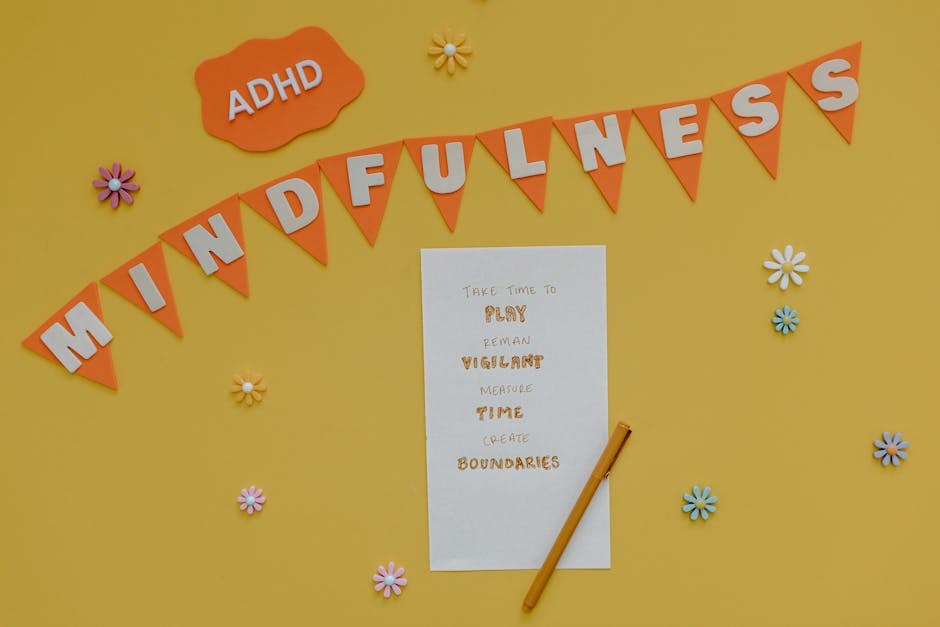Trust is the quiet engine of a healthy marriage – when it hums, everything else moves smoothly. But when that hum turns into a rattle, doubt creeps in and you start noticing details that once seemed harmless. If you’re wrestling with worries about a cheating spouse , you’re not alone. Suspicion doesn’t prove anything by itself, yet it often signals that something meaningful has shifted. What follows is a clear, compassionate guide to common patterns people report when fidelity slips, alongside practical context so you can interpret what you see without rushing to judgment.
Why awareness matters
Most partners begin with the assumption of loyalty – that shared understanding is part of the bond. Still, staying observant protects your emotional wellbeing. The goal isn’t to snoop or convict; it’s to stay grounded in reality. If your concerns involve a cheating spouse , noticing repeated behavior over time is more telling than reacting to a single odd moment. Patterns – not isolated blips – are what you’re looking for.
Behaviors that often raise red flags
The following signs appear differently across relationships. Any one of them can have innocent explanations, but clusters of changes that arrive together may point to a deeper issue. If you’re concerned about a cheating spouse , read with curiosity rather than panic and compare these descriptions to what you actually observe.

-
Your intuition won’t quiet down
Even the most rational person has a gut sense for when the ground beneath them isn’t steady. Intuition isn’t proof, yet it’s a signal – your mind collects subtle cues before you consciously articulate them. If an inner voice keeps nudging you about a cheating spouse , treat that feeling as a prompt to pay closer attention, track specifics, and see whether your observations form a consistent story.
-
Sudden lock-down of devices and accounts
Phones, laptops, tablets – the everyday tools of life – sometimes become off-limits overnight. New passcodes, disabled previews, disappearing notifications, and a new habit of tilting the screen away can feel jarring. Privacy is normal; secrecy is different. If the boundary around technology hardened without discussion, and especially if it coincides with other changes, it can fuel concern about a cheating spouse .
-
Shifts in your intimate life
Physical connection rises and falls throughout long relationships. What’s noteworthy is an abrupt change without a credible cause – a sharp decline or an unexpected surge that arrives with new behaviors you’ve never shared before. People wrestling with guilt sometimes overcompensate, while others withdraw. Either extreme, if it appears alongside other signs, may feed the worry that you’re dealing with a cheating spouse .

-
Unreachable in predictable pockets of time
Everyone gets busy, and small lapses happen. But consistent blackouts – the same weekday afternoons, the same late evenings – hint at a routine. If calls roll to voicemail and messages go unanswered in repeating patterns, and those windows line up with other anomalies, it can reinforce fears about a cheating spouse .
-
Friends act unusually guarded or overly nice
Social circles often sense shifts before partners do. If their friends avoid eye contact, rush through conversations, or suddenly become extra attentive, they may be struggling with what they know or suspect. You don’t need to interrogate anyone; simply note whether this change coincides with other behavior linked to a cheating spouse .
-
Emotional distance replaces everyday closeness
Where you once swapped stories freely, now you get short, clipped answers. Jokes fall flat. Shared planning turns into logistics only. It can feel like your partner has relocated emotionally – present at dinner, absent in spirit. If your attempts to reconnect are met with indifference or defensiveness, that gap can intensify concerns about a cheating spouse .

-
Irritability and blame aimed in your direction
When someone carries a secret, they sometimes manage guilt by projecting it outward. Minor inconveniences spark major reactions; harmless questions get framed as interrogation. You might hear accusations that you’re too needy, too suspicious, or not fun anymore. That reversal – you becoming the problem – is a classic dynamic people describe when coping with a cheating spouse .
-
An unexpected makeover
Self-improvement is healthy, and many people reinvent their look. What raises eyebrows is a sudden, dramatic shift paired with secrecy – new grooming habits, fragrance, wardrobe upgrades, careful styling before routine errands. If the change is accompanied by protectiveness around the phone or unexplained late nights, it can read as one more data point pointing toward a cheating spouse .
-
Routine and schedule no longer add up
Late meetings that weren’t part of the job before, surprise business trips, errands that always take much longer than they should – these can be legitimate. But when explanations stay vague or contradict earlier details, a pattern emerges. Keep a calm record of what’s said and what actually occurs; over time you’ll see whether your worries about a cheating spouse are supported by facts.
-
Spending that doesn’t fit the picture
Cheating has costs – meals, rides, hotels, gifts. You might notice unusual withdrawals, recurring charges at unfamiliar places, or cash disappearing faster than normal. You don’t need to become an auditor; simply note discrepancies and ask direct, non-accusatory questions. Inconsistent answers can intensify doubts about a cheating spouse .
-
Curated activity on social media
Interaction patterns often tell a story. Frequent likes and comments directed at one person, late-night exchanges, or a sudden halt to posts about your relationship can stand out. People intent on keeping two worlds apart may also untag photos or stop sharing couple content entirely. While none of this proves a cheating spouse , combined with other signs, it can be meaningful.
-
The phone never leaves their side
In many homes, phones rest on coffee tables without drama. A rapid switch to carrying the device everywhere – even to the bathroom or bed – suggests heightened vigilance. Face-down placement, quick screen flips when you walk in, and new notification settings can reinforce the suspicion that you’re dealing with a cheating spouse .
-
Conversations about concerns turn into deflections
When you carefully bring up what you’ve noticed, a constructive partner aims to understand and reassure. A deflecting partner sidesteps – changing the subject, accusing you of mistrust, or suggesting the problem is your insecurity. If every dialogue becomes a maze, it can amplify the sense that a cheating spouse is avoiding accountability.
-
Public affection drops off sharply
Couples have their own comfort levels with touch. The red flag here is a stark departure from your normal. If handholding, quick kisses, and playful gestures vanish in public – especially if they once came naturally – the retreat may reflect a wish to appear unentangled. That shift often worries those who suspect a cheating spouse .
-
Upgraded underwear and private wardrobe changes
People update undergarments for all kinds of reasons, but brand-new styles and premium pieces that appear out of nowhere can raise questions. If the upgrade pairs with secrecy about laundry or gym bags, it becomes one more puzzle piece some associate with a cheating spouse .
-
New hobbies that mirror someone else
Fresh interests can be energizing. Yet a sudden devotion to activities your partner never mentioned – coupled with a reluctance to include you – may mirror someone they’re investing in. When you offer to join and the enthusiasm fades, it can reinforce the impression of a cheating spouse building a separate world.
-
Storytelling becomes oddly sparse – or overly detailed
Some people go quiet, sharing only the bare minimum about their day. Others pile on specifics – names, timestamps, elaborate side plots – in a way that feels rehearsed. Both extremes can be strategies to manage anxiety. If those patterns persist and clash with your history together, they can point toward concerns about a cheating spouse .
-
Little lies pop up in daily life
Big betrayals are often paved with small untruths. You hear about a quick stop for medicine, but the item never appears at home. They mention visiting a relative, yet later say they haven’t talked in days. If inconsistencies stack up, your mind naturally returns to the possibility of a cheating spouse .
What to do with what you’re seeing
Information is empowering – panic is paralyzing. If you suspect a cheating spouse , start by slowing down and gathering your thoughts. Write neutral notes about specific behaviors and dates so memory doesn’t blur details. This isn’t about building a case; it’s about separating feelings from facts so you can speak clearly. When you’re ready, choose a calm moment and talk. Use straightforward language – “Here’s what I’ve noticed; here’s how it affects me; can we talk about what’s going on?” – and avoid loaded labels. Your aim is to understand, not to punish.
It helps to set boundaries for the conversation. Ask for honesty and request simple answers when possible. If your partner grows defensive, you can pause and revisit the discussion later. The presence of a trusted counselor can create a safer container for both of you. Remember, protecting your peace matters – you don’t have to tolerate stonewalling or manipulation from a cheating spouse .
If infidelity is confirmed
Discovery can flood the body with shock, anger, and grief. Give yourself permission to feel all of it – and to avoid major decisions while your emotions spike. Lean on supportive people who can listen without fanning flames. Once steadier, decide what you need in the short term: transparency about communication, a defined period of space, or concrete steps toward repair. Some couples do the hard work of rebuilding; others part ways. Either path requires clarity about your boundaries, your safety, and your self-respect when the issue is a cheating spouse .
Understanding the “why” without excusing the choice
People offer reasons for crossing lines – boredom, resentment, loneliness, disconnection, curiosity, fading attraction, a sense of entitlement. None of these justifies betrayal. What matters is that conversation and problem-solving were available before cheating happened. A cheating spouse made a decision. That clarity helps you resist the urge to absorb blame that isn’t yours. If you choose to explore reconciliation, motivation for genuine change – transparency, empathy, and consistent effort – speaks louder than promises.
Ways to ground yourself while you decide
Regulate first, talk second. Big feelings narrow perspective. A walk, deep breathing, or journaling can expand your window of tolerance before addressing a cheating spouse .
Document patterns. Brief, factual notes help you see trends and reduce second-guessing. They also keep conversations focused on specifics rather than spiraling into generalizations about a cheating spouse .
Define needs clearly. Whether you require a period of transparency, therapy appointments, or space, say so plainly. Clarity sets the stage for accountability if a cheating spouse hopes to repair trust.
Protect your resources. Keep an eye on finances and important accounts until you understand what’s happening. Prudence is not punishment – it’s boundary-setting in the face of a possible cheating spouse .
Seek supportive voices. Choose confidants who respect your privacy and your agency. You need calm, steady input while navigating decisions related to a cheating spouse .
Looking at patterns as a whole
No single sign proves anything. A phone turned face-down at dinner could be courtesy; a busy week at work could be just that. But when secrecy, schedule changes, emotional distance, and defensiveness arrive together and persist, the story starts to write itself. Your job is to read it with courage and kindness – toward yourself first. Whether you continue together or step apart, you can insist on honesty, respect, and consistency. Those expectations are reasonable in every relationship, and they are nonnegotiable when facing the possibility of a cheating spouse .
Putting the pieces together
Here’s a simple structure you can use to check your perceptions without spiraling. It isn’t a verdict – it’s a way to organize your thoughts about a potential cheating spouse while you gather more clarity.
-
Notice
Write down what happened, when, and how often. Keep observations neutral: “Phone locked after dinner for the past week,” “Canceled two recurring plans,” “Frequent likes on one person’s posts.” Building this habit reduces guesswork if you suspect a cheating spouse .
-
Compare
Hold new behavior against the old baseline. Ask yourself: Is this a one-off or part of a trend? Which explanations fit best? Honest comparison prevents you from overreading one event while still honoring concerns about a cheating spouse .
-
Ask
Choose a calm time to talk. Use clear, short statements. Avoid character attacks. Give your partner a fair chance to respond – and pay attention to whether the response matches what you’re seeing. Evasive answers can intensify the sense that you’re dealing with a cheating spouse .
-
Decide
Based on patterns and responses, determine your next step: request transparency, suggest counseling, set boundaries, or take space. Your wellbeing matters. A cheating spouse doesn’t get to define your limits for you.
When repair is on the table
Recovery, when both partners want it, depends on sustained honesty and behavioral change. That means consistent availability, reasonable access to information, empathy for the harm caused, and patience with triggers. If a cheating spouse is genuinely committed to rebuilding, actions will align with words over time. You’re allowed to ask for the conditions you need to feel safe again – that’s not punishment; it’s the price of rebuilding trust.
And if reconciliation isn’t your path, choosing yourself is not a failure – it’s a declaration of self-respect. Whether you stay or go, you can move forward with dignity, clarity, and care for your own heart, even after navigating the storm that a cheating spouse can unleash.